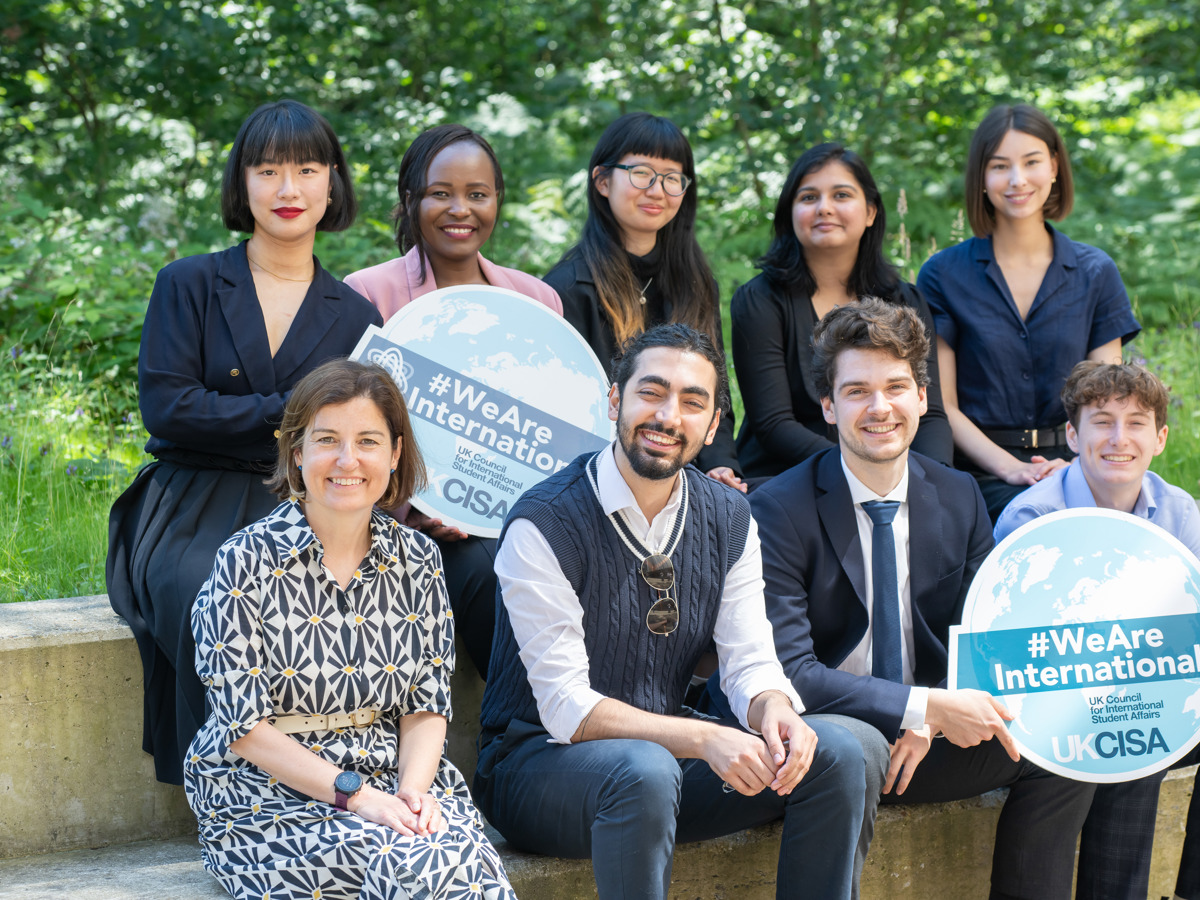
Cautious optimism for the future after five years of building a united voice for international students
July 18, 2024
It’s been a tumultuous few years politically.
As Chief Executive at UKCISA for five years this year, I’m now on my fifth Home Secretary (sixth if you count Suella Braverman twice!), which you could argue is not too unusual for such a volatile area of policy. However, I think no one could predict five prime ministers in five years, particularly from only two general elections. And that’s before we think about the historic two monarchs over that time.
Early in that five years, we celebrated the announcement that the post-study work visa would return in the form of the graduate route. UKCISA lobbied successfully for the flexibility of that route, including self-employment, and we were delighted to host its launch at the UKCISA 2021 annual conference. Unfortunately, as I approached the end of that same period, I found myself defending the Graduate route and arguing for its retention to the Migration Advisory Committee (MAC). Perhaps this is the clearest demonstration of how significantly things can change in policy terms.
What has remained constant over those five years is the way in which we have sought to build strategic alliances with sector partners to provide a united voice for international students. I set out to do this when I joined, but little did I realise I would have so many important reasons to have to ensure this collaborative approach.
It’s still somewhat early to tell what the new government will mean for us and our members on student immigration. There have been positive comments this week from the Education Secretary about the higher education sector as a public good, and engines for economic growth, so we hope for a less divisive rhetoric on education.
What has remained constant over those five years is the way in which we have sought to build strategic alliances with sector partners to provide a united voice for international students.
Early conversations with colleagues in government and across the sector indicate a return to evidence-based policymaking, so it’s essential for us and our partners across the sector, working with our members and international students to tell compelling stories through data and qualitative evidence. We will reiterate our key policy positions in our introductions to incoming ministers and MPs, to help ensure a sustainable international student policy.
While there are lots of causes for optimism, it's not going to be plain sailing. The relative success of Reform, who pledged to freeze all ‘non-essential immigration’ and ban students from bringing partners and children to the UK in their manifesto is concerning, not least as they will put pressure on Labour to be tough on immigration. The number of leading Conservatives who have lost their seats leaves others who have been less positive about student immigration (for example Suella Braverman) in the running for the next party leadership. Other less senior Conservatives who have made negative comments on student immigration and the HE sector remain in their seats and could be promoted to future shadow cabinets.
The new government is going to have to fight hard on the immigration front, and has a former Home Secretary in a senior higher education role in the Department for Education, so we expect to have to counter negativity around student immigration at some point. However, it's likely that the pace and volume of negative policy shifts will change in our favour, at least in the short term.
Undeterred by the political turmoil of the past five years, there is so much UKCISA and the sector have done together.
We're writing to key ministers and MPs as portfolios are confirmed to introduce UKCISA and our policy recommendations, and to reinforce the key messages that need to be made in order to ensure a sustainable international student experience. This includes the need to make an early public statement to confirm the retention of the graduate route as per the MAC recommendations.
We’re also working to clarify the likely progress of other proposals made in May, before parliament was dissolved, including agent registration, maintenance requirements and remote delivery policy.
So, despite all the upheaval, it appears that radical change may not be imminent. Whatever happens, we've done a lot of work to prepare for this and we are beginning conversations with new parliamentarians with cautious optimism.

UKCISA's #WeAreInternational Student ambassadors with UKCISA Head of Engagement and Partnerships, Yinbo Yu, at UKCISA Annual conference 2024.
Undeterred by the political turmoil of the past five years, there is so much UKCISA and the sector have done together. From the game changing relaunch of the #WeAreInternational brand, through the development of our influential student ambassador programme, to ensuring that the International Education Strategy included ambitions around the international student experience. As anticipated, we navigated the extensive changes resulting from Brexit. Unexpectedly, we worked hard to support our members and the student experience through a life-changing pandemic. We introduced the groundbreaking #WeAreInternational Student Charter, guided by our student ambassadors, building a framework for member organisations to monitor and evaluate how they support and value the international student experience. That the UK has such a charter sends a unique and unequivocal message that the international student experience matters.
I’m proud of those five years, and the work done to ensure that the UK remains a welcoming and inclusive place for those who choose to study here.
Most of all, I’m proud of the way we have raised the profile of the international student voice in all these conversations and initiatives. Whatever comes, UKCISA will strive to ensure that students’ voices and experiences are represented in policies that affect them and support our members in their work to deliver a positive international student experience for everyone who comes to the UK.


